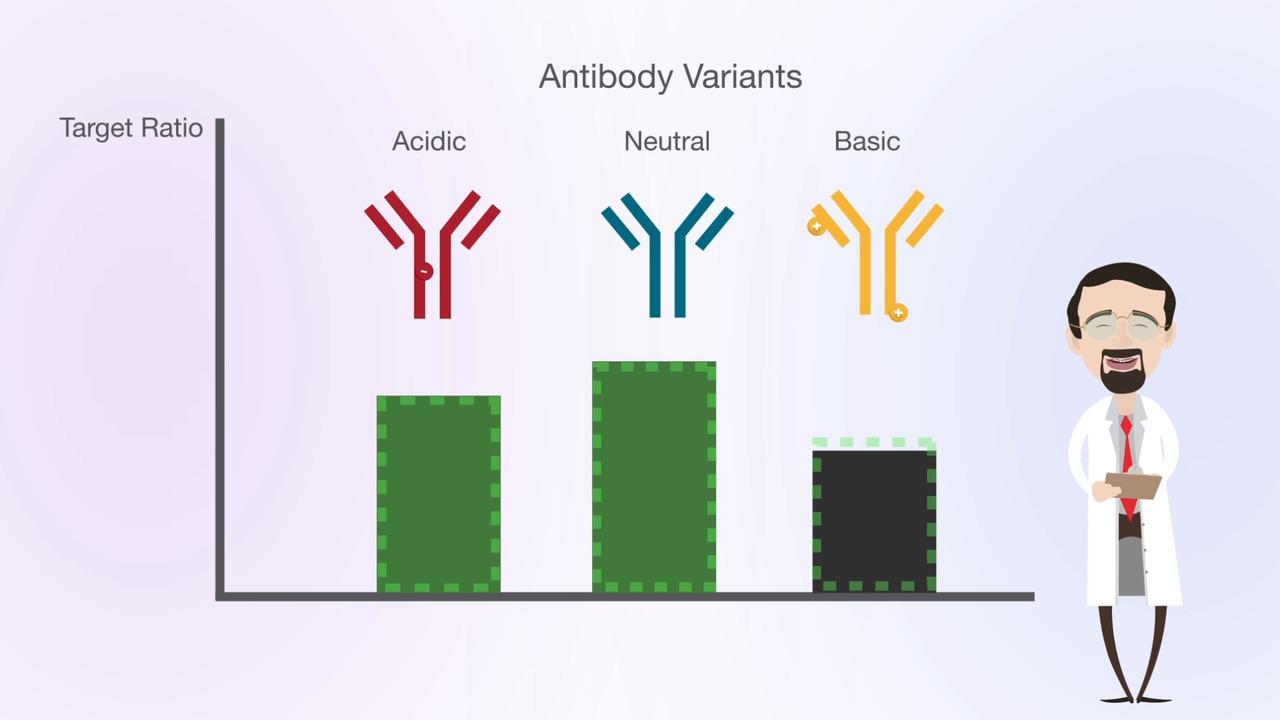Overview
Get the performance you need to reliably identify and monitor the charge variants in your proteins and monoclonal antibodies (mAbs).Thorough characterization of monoclonal antibodies (mAbs) throughout the drug development and production processes allows for the detection of potential modifications that can affect the product’s efficacy, safety, and stability. Charge variant analysis using ion-exchange chromatography (IEC) separates proteins based on differences in charge, making it an ideal method for detecting these modified species. IEC is based on a stationary phase with a charged ligand on the surface that interacts with analytes of the opposite charge. The technique is divided between anion-exchange and cation-exchange chromatography. In anion-exchange, positively charged surface ligands interact with negatively charged analytes; in cation-exchange, negatively charged surface ligands interact with positively charged analytes. |
Recommended IEC HPLC columns for charge variant analysis
| ProPac Elite WCX HPLC columns | ProPac 3R SCX HPLC columns | ProPac 3R SAX HPLC columns |
|---|---|---|---|
✓ Use this weak cation-exchange (WCX) column for proteins with a pI > 6 ✓ Most widely used column technology for charge variant analysis ✓ Designed with bio-inert materials to reduce secondary interactions ✓ Able to use pH or salt gradients ✓ To quickly develop a method on a LC-UV platform for proteins with a pI from 6-10, use this column in combination with linear Thermo Scientific CX-1 pH gradient buffers | ✓ Provides complementary selectivity to weak cation-exchange columns ✓ Able to run faster gradients over a wider pH range ✓ Provides excellent performance to deliver the reproducibility, resolution, and robustness needed for successful charge variant analysis ✓ Designed with bio-inert materials to reduce secondary interactions ✓ Able to use pH or salt gradients ✓ To quickly develop a method on a LC-UV platform for proteins with a pI from 6-10, use this column in combination with linear Thermo Scientific CX-1 pH gradient buffers | ✓ Use this strong anion-exchange column for proteins with a pI < 6 ✓ Provides excellent performance to deliver the reproducibility, resolution, and robustness needed for successful charge variant analysis ✓ Designed with bio-inert materials to reduce secondary interactions ✓ Able to use pH or salt gradients | |
HPLC column selection guide
3 ways to search
|
|
|
Resources
Videos and webinars
Understanding the Versatility and Challenges of Charge Variant Analysis for Biotherapeutics
Literature
Application notes
Brochures
Flyers
Related resources
Contact us
* Required field












